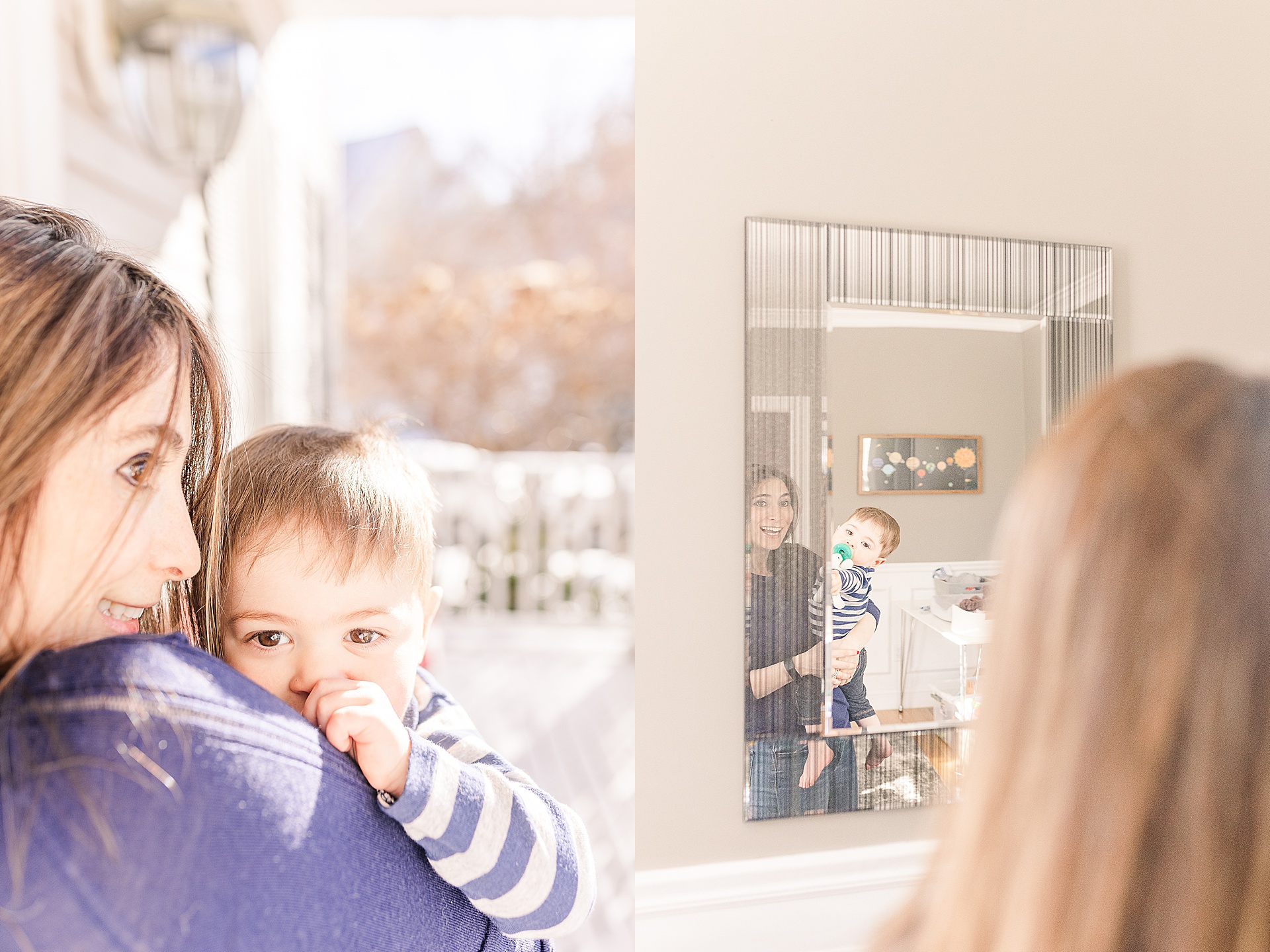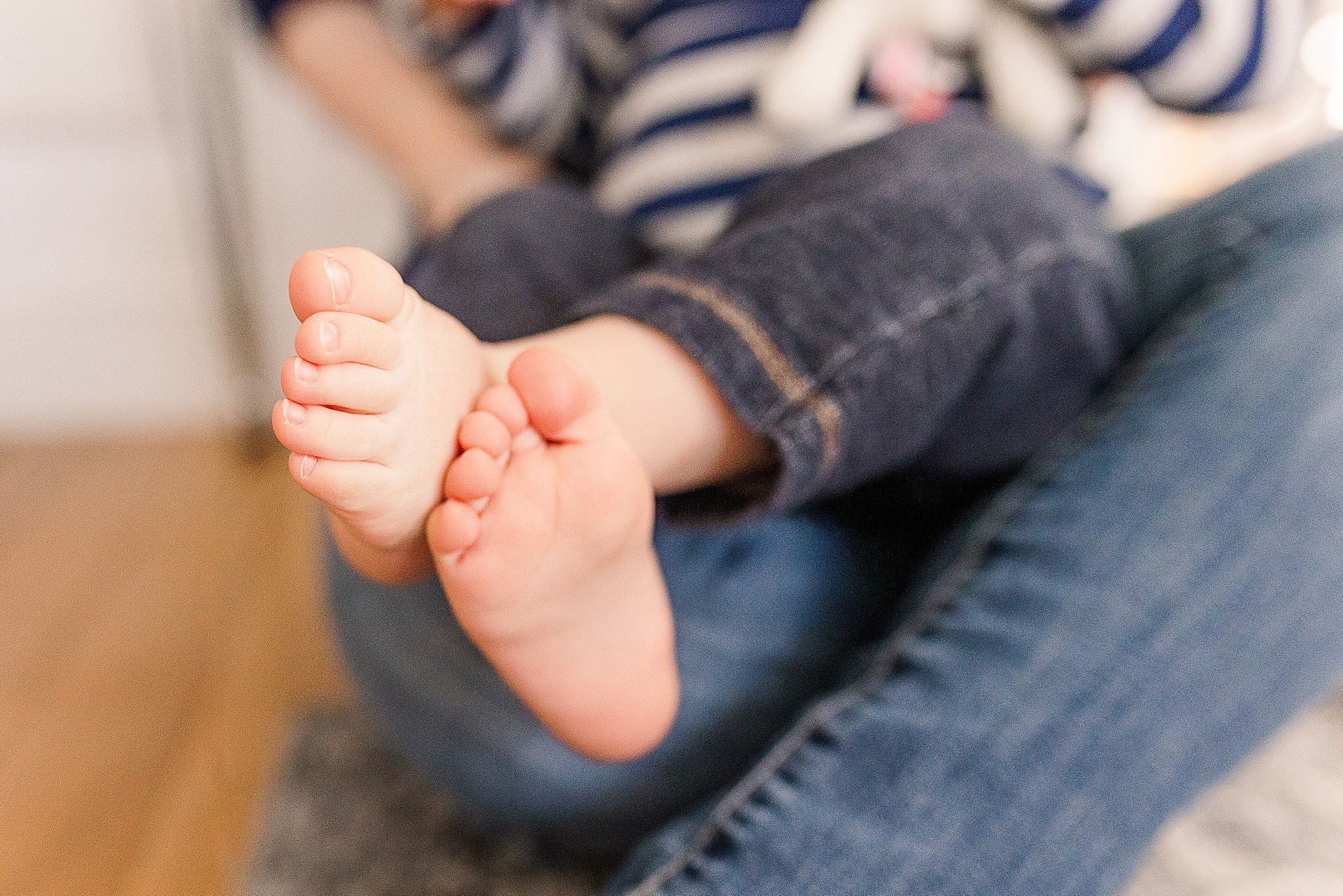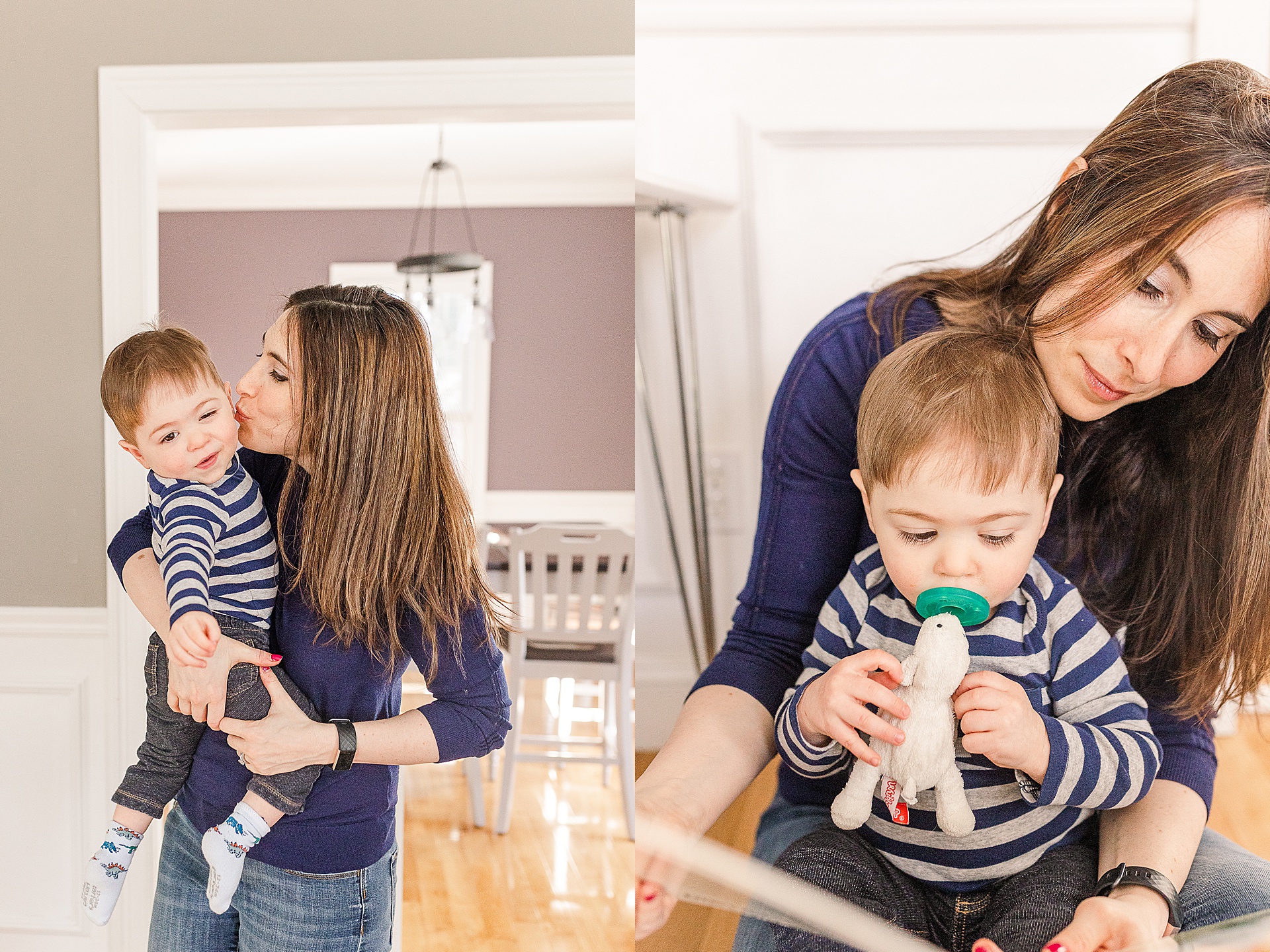Written by Alexandra Rubin
Our NICU experience by the numbers
- 28. Wednesday, August 5, 2020, according to my pregnancy app, marked 28 weeks pregnant. One trimester to go until we met baby boy. The morning was uneventful. Since the pandemic started in March, I had developed a routine of working mostly from my dining room table. It was around 10:30, when all the sudden I felt like a water balloon had popped under my dress. There was no mistaking what just occurred. My water broke- at 28 weeks pregnant- while on a Zoom call with my boss. I told him that I needed to call him back and cut the feed. I then called my doctor’s office and they said that I needed to come in and get checked-out at the nearest hospital in their hospital system. Immediately. I remember mentioning that I had laundry that needed to go in the dryer. The nurse said she was not getting off the phone until she knew I was in the car, so the laundry needed to wait.
- Level 2. I arrived at a local hospital that my doctor was affiliated with. I was too nervous to drive into Boston, so my doctor’s office called-ahead to the labor and delivery department at a smaller hospital closer to home. I had just arrived at the parking garage when my cell phone rang. It was the doctor at this hospital telling me not to come in. She explained that if my water broke, I would need to be transferred to Boston in an ambulance because this hospital only had a Level 2 NICU, and they did not have an available ambulance because of COVID. I didn’t understand what the level reference meant (later, I learned, that it meant that they did not have the level of care necessary to treat a baby at that gestational age and I needed at least a Level 3b NICU). My husband met me outside the parking garage, and he drove me into Boston. My car sat in that parking garage for another 3 days until a friend was able to come and retrieve it.
- 7 weeks. After the doctor in Boston confirmed my water broke, she immediately administered a COVID test “because you’ll be staying with us for a while.” I remember asking “what’s a while?” She explained that I could go into labor today… or they could keep me pregnant and then induce me at 35 weeks, closer to full-term if everything goes well. My first thought was that I had wished I brought my phone charger. My second thought was that I was facing an undeterminably long hospital stay for potentially close to two months, alone, in the middle of a viral pandemic.
- 48 hours. A nurse came in the room to administer a very large injection of steroid. This was dose 1 of 2, administered 24 hours apart, to mature baby’s lungs in the event of an early delivery. In 48 hours from the first injection, I would be “beta clear.” The nurse emphasized to me how important it was to reach beta clear status. I asked if there was anything I could do to ensure beta clear, and she said no. So, I waited.
- 56. I went online and bought a few Old Navy swing dresses to wear during my stay and rush-shipped them to my home address for $56. They were short-sleeved, so plenty of access for IVs and injections. They were roomy in the waist, modest in length, and professional looking for work zoom calls. My husband would constantly take-home dresses, do laundry, and bring them back to the hospital. I refused to wear the johnny. Getting dressed every day before breakfast made me feel accomplished. There wasn’t a lot that I could control, but I could, at the very least, look presentable.
- 12am. I never went to bed before 12am during my hospital stay. The doctors noted that every day on the inside was the equivalent of 2 days in the NICU; so, I wouldn’t let myself rest until I knew that I gave him another day. Mostly, I’d stream some Netflix (Schitt’s Creek gave me life) and scroll Facebook. I chatted with friends who I hadn’t spoken with in years. I attended virtual book club and helped plan my virtual baby shower. I attended night meetings for work over Zoom. Somehow, I made the time pass.
- 808. The hospital has approximately 20 ante-partum rooms on the eighth floor of the building for women who need to be hospitalized for complications during pregnancy. I jokingly referred to the floor as “pregnancy jail,” and I was in cell #808. Whenever I would order food, I always had to give the room number. Whenever I walked the floor, if someone stopped me, I would need to give my room number. Whenever transport took me to an appointment or imaging scan, I would need to give my room number. The room number became a piece of my identity, like my birthdate. There were almost 20 different nurses on the floor, the teams of doctors changed every week, but the room stayed constant. I tried to make it “homey” because I didn’t know how long I’d stay. My husband brought a lamp from home that cast a soft glow at night. I had a fuzzy throw-blanket to keep me warm. The windowsill was filled with flowers sent by family, friends, and co-workers. The window looked-out towards the east, and I could see the sunrise every morning over the one large hill in Boston. It also had double-pained, sound-proof, unbreakable glass. The nurses half-joked that the windows prevented patients on the floor from jumping out. Really, the glass was sound-proofed so that I couldn’t hear the medical helicopters, which constantly flew towards and away from the building. I could still feel the vibration, however. Sometimes, at night, I would feel the vibration and see the blinking red lights from the helicopter and think to myself, at least I am safe in this room and not in a condition that necessitates me being on that aircraft. Grateful.
- 758. My average number of steps per day according to Fitbit. 2 injections per day of blood thinners prevented me from clotting. 15 paces from the window to the door. I tried to get as much “exercise” as I could, but since I lost so much fluid, every step was like walking with a bowling ball in my pelvis. I once made it to 1056 steps, but the strain caused me to become dizzy and 1 EKG later, the nurse told me that was too much, and I needed to dial it back.
- 10. Because of the pandemic, I was only allowed 1 visitor each day. On most nights after work, my husband would come over for dinner. I’d cover the rolling tray with a white bed sheet (fine dining hospital-style) and he’d have me place his guest-tray order. At the hospital, I could order a guest tray for $10-essentially all you could eat. His favorite order included 1 flat bread pizza, 2 sides of mac and cheese, 1 container of vanilla ice cream, 1 slice of apple pie, 2 bottles of water, a few Frank’s red-hot packets, and 1 side salad. These dinners were the highlight of my day. It felt ridiculous to order that much food, but it was so nice to have a visitor and see another person, in-person, who didn’t work at the hospital.
- 75%. One night after a politically polarizing television event, I woke up for my morning vitals. The nurse smiled at me and said, “I’m so happy you’re still here!” I looked at her, confused, and she told me that during the night shift, 3 of her 4 patients went into labor. She said it was like this invisible smoke that waifed into her patients’ rooms, one-by-one, down the hall… but it skipped me. It made me think how quickly statuses can shift on the floor and made me wonder why I hadn’t gone into labor, too. Ultimately, I had 10 days left.
- 33 days. I went into labor on Labor Day (kid has a sense of humor). My stomach started hurting after lunch, while watching the episode of Schitt’s Creek when Patrick sings to David during karaoke. I had developed a blood infection which quickly set-off contractions (a very real risk in my situation, and the main reason why I needed to stay in the hospital). 2 hours later, with 15 doctors and nurses in the operating room, Mr. Matthew was born at 32 weeks, 5 days, at 4 pounds 6 ounces.
- 2am. Once I was discharged home, I would wake up every morning at 2am to pump. During one early-morning session, I read an article involving Chrissy Tiegen and John Legend. Chrissy was in the ante-partum unit at a hospital in California for pregnancy complications and she was posting images and updates on her Instagram. One picture, taken from her POV, showed John sitting in a tan pleather chair about to eat dinner served on the ubiquitous rolling tray. It was the exact setup that involved me and my husband during our dinner dates (sans the bedsheet tablecloth) a few weeks earlier. For some reason, that image made my blood run cold. No matter your celebrity status, income, standing in life, or access to medical care-this is a reality that happens every day to women across the country.

What I wish I had known prior our NICU experience
- 2. The NICU at the hospital has 5 units, or “neighborhoods.” Roughly, the neighborhoods correspond with the level of care necessary for the baby (Neighborhood 1 is for the most medically complex and fragile- Neighborhood 5 is close to discharge). For some reason, I thought that since we made it past 32 weeks, he would have gone into Neighborhood 3 or 4, so it was a punch in the gut for him to be admitted to Neighborhood 2. There were so many tubes, wires, and monitors that I was afraid to touch him. Still trying to physically recover from surgery, an infection, and extended hospital stay, I intentionally stayed away from his bassinet and let the doctors and nurses do their job. I felt so much guilt for him being in this position. I realize that I couldn’t have done anything different and it wasn’t my fault, but I felt completely helpless. I wish I had known that this feeling was normal.

Advice for parents experiencing the NICU
- 5, 8, 11, and 2. Care time. NICU-life is very regimented. Generally, nurses will do medication administration, feeding, and diapering every 4 hours. In the interim, baby rests. Care time were the points in the day when I could hold and touch Matthew. Try to arrange your visiting schedule so that the visit aligns with care-time (I would arrive in time for the 8am and stay through at least 2 care time-cycles).
- 2. Early in my stay, I realized that I was going to need some emotional support. Typically, the ante-partum floor is relatively social—crafting events, tea parties, “happy” hour—but the pandemic made it impossible for us to socialize and everyone had to stay in their rooms. During one of my late-night Facebook scrolling sessions, I stumbled upon a post in a podcast group made by a girl who had alluded to the fact that she was in a similar situation. I sent her a PM and for the remainder of my stay (and now, more than a year later) I corresponded with 2 other girls who were also hospitalized, alone, during a pandemic, because their water also broke too early. It made me realize that this happens every day all over the country, and that while we were not geographically close (Boston, DC, and Chicago), we could share our ups and downs, small victories, fears, and jokes. Now we share photos of our children and milestones. I hope to meet them in-person someday. Don’t be afraid to reach-out to others.
- 200. There are more than 200 nurses staffed in the NICU. During his 6-week stay, I met more than 25 of them, but even more than that took care of him. The majority of the nurses were amazing. 1 in particular, Julie, was assigned as Matthew’s primary nurse and stayed on his care-team his entire time. She was the first person on the NICU to ask me how I was doing, and she taught me all of the “mom” things like how to change a diaper, give him a bath, and feed him. I cried during her last shift with him. Each nurse had something to offer in terms of expertise and experience. One realized that Matthew liked to be swaddled in a particular way. Another realized that he liked having his photo taken. They are a resource and, to a certain extent, know your baby better than you do.
- 1 word, 2 letters. Every week, the doctors in the NICU would rotate. Around the 4.5 week mark, the doctor on service (who gratingly called every mom on the floor “Mommy [last name]”) told me that Matthew was getting ready for discharge. I don’t know what force took over me, but every fiber in my being screamed that he was not ready to go home, and I quickly said NO. She replied with comments about how she makes that determination and not me and how insurance wouldn’t cover his stay once she said he can go. I stood my ground and said NO. She replied, “we’ll see” and walked away. I immediately started a campaign involving every nurse on his care, social workers, insurance liaisons and other physicians (including her boss) to take a close look at his history, current status, and other factors and document that he needed to stay. I just knew that this baby was not ready to go home. NO. I was a woman on a mission. 3 days after this conversation, Matthew had an episode in his sleep where he stopped breathing and needed intervention. It makes me sick to think of what would have happened if he had been discharged and it happened at home. You will need to advocate for your child- even if it’s advocating against the doctors in charge of care. Don’t stop until someone listens. MAKE them listen.

See more NICU Experience stories here
BE THE FIRST TO COMMENT